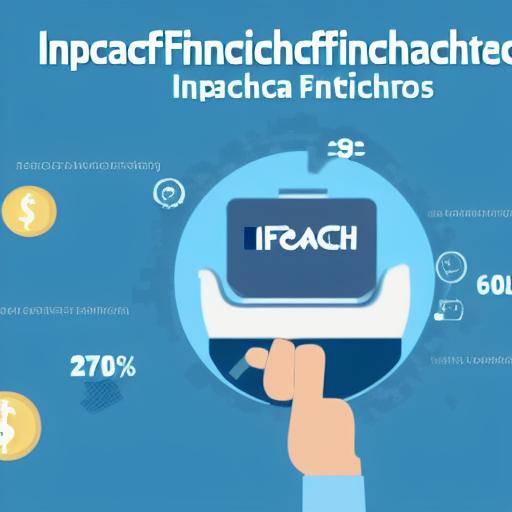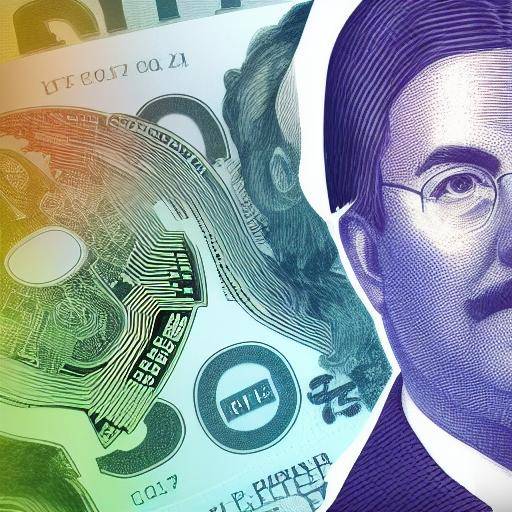
Introduction
Imagine a world where banking is no longer limited by traditional structures; where financial transactions are carried out agilely, safely and without the old restrictions. This scenario is already a reality thanks to the unstoppable advance of technology and innovation in the financial sector. In this article, we will explore how financial technology, also known as Fintech, is making a radical change in traditional banking. You will discover the evolution of these trends, as well as the influence of technology in this process of transformation.
History and Background
The history of traditional banking dates back centuries, with its roots deeply rooted in practices and systems that have evolved over time. The introduction of financial technology has led to a significant change in this scenario. From the emergence of the first financial institutions to the massive adoption of digital computer systems and platforms, each stage has marked a milestone in the evolution of the financial sector.
In the 1950s, the introduction of the first credit cards marked a crucial change in the industry. With the evolution of information technology in the following decades, banking experienced a series of transformations that led to greater scope, efficiency and security in financial transactions. The arrival of the internet and electronic commerce completely redefined how people interact with banking services. These developments provided the basis for the incursion of financial technology into the banking sector.
Example of case
A clear example of technological developments in banking is the emergence of the first online banking platforms. These allowed customers to perform banking operations from the comfort of their homes, marking a significant change in the way people manage their finances. This evolution has continued with the adoption of mobile applications, the incorporation of artificial intelligence in financial decision-making and the development of advanced security systems to protect customer information.
Deep analysis
The arrival of financial technology has made many benefits for the banking sector. Accessibility and convenience have increased considerably, allowing customers to perform transactions at any time and place. Process automation has streamlined the internal operations of financial entities, reducing costs and waiting times. However, this change has also presented challenges, such as the need to ensure cybersecurity and data privacy.
In an increasingly interconnected world, the steady evolution of financial technology has driven a number of innovative trends. Open banking, for example, has allowed customers to share their financial data with trusted third parties, leading to the proliferation of personalized services and applications. Artificial intelligence and automatic learning have been integrated into banking systems to predict behaviors and provide customized recommendations to customers. These trends represent only a fraction of the vast panorama of technological developments in the financial sector.
Impact statistics
According to a recent study, 82% of consumers use online banking services, which evidences significant change to digital transactions. It is also estimated that the global financial technology market will reach a value of $305 billion by 2025, reflecting the continued momentum of the industry towards technological innovation.
Comprehensive review
Practical applications of financial technology extend across various areas, from heritage management to peer-to-peer loans and risk management. These technological solutions have demonstrated their effectiveness and precision in the analysis of financial data, allowing more informed and agile decision-making. However, it is crucial that financial entities carefully consider the implications of privacy and security when implementing these innovations.
The evolution of financial technology has led to a significant change in how people save, invest and manage their money. The introduction of personal financial management applications has empowered users to monitor their expenses, set financial targets and receive personalized recommendations. This has marked a change in the relationship between customers and their financial institutions, promoting transparency and informed decision-making.
Comparative analysis
It is interesting to compare how traditional banking, with its rooted approach in the face and bureaucratic, contrasts with the agility and efficiency driven by financial technology. While traditional banking entities have had to adapt to compete in a more agile and digital environment, Fintech startups have challenged the status quo with innovative approaches, specialized services and a user-centred mentality.
Financial technology has proven to be a change catalyst, challenging traditional business models and promoting competition in a sector that was previously dominated by a few large financial entities. This evolution has led to a diversification of consumer options, which can now choose from a wide range of financial services adapted to their particular needs.
Practical Tips and Accessible Recommendations
Faced with this scenario of constant change, both financial and consumer entities can take certain measures to maximize opportunities and address the challenges of financial technology. Some practical tips include:
- Stay informed of the latest trends and developments in financial technology.
- Take cybersecurity precautions by using online financial applications and platforms.
- Find expert advice to understand and make the most of available Fintech solutions.
- Explore different technology-based investment and financial management options to diversify heritage.
These recommendations reflect the importance of being prepared and educated in an evolving financial environment.
Ideas and Industry Reviews
For a more comprehensive view of this issue, it is essential to consider the views of experts in the financial industry. According to the opinion of prominent specialists, the role of financial technology will continue to expand, transforming the way people interact with their finances and presenting opportunities for increased financial inclusion. These perspectives highlight the importance of adapting to this change, both individually and business.
Case Studies and Practical Applications
It is crucial to analyze real cases where financial technology has generated a significant impact. An outstanding example is the emergence of collective funding platforms, which have democratized access to finance for entrepreneurs and small businesses that previously had no access to traditional bank loans. The analysis of these cases provides a tangible insight into how financial technology is transforming economic dynamics.
Future Trends and Predictions
Current trends point to a future where financial technology will play an even more influential role in the global financial landscape. The adoption of emerging technologies such as blockchain, asset tokenization and digital currencies will continue to redefine financial transactions and business models. The constant evolution of artificial intelligence and predictive analysis will also shape how financial entities operate and offer their services.
Conclusion
In conclusion, the transformation of traditional banking driven by financial technology represents a fundamental change in the way we interact with the financial world. Constant evolution, tangible benefits and possible future implications make this topic something worthy of attention and reflection. In understanding and adapting to these changes, both consumers and financial institutions can make the most of the opportunities presented by financial technology, moving towards greater efficiency, inclusiveness and financial security.
Frequently asked questions
How has financial technology changed the way we manage our personal finances?
Financial technology has revolutionized the way we manage our personal finances by providing greater accessibility, transparency and personalized options. Financial management applications, online banking and investment platforms are just some of the innovations that have transformed the way we manage our money.
What challenges are the widespread adoption of financial technology?
While financial technology has many benefits, its widespread adoption also faces challenges related to cybersecurity, data privacy and financial inclusion. It is crucial to address these challenges to ensure that financial technology benefits a broad spectrum of the population in a safe and equitable manner.
What is the future of traditional banking in an environment driven by financial technology?
The future of traditional banking is intrinsically linked to the integration and adoption of financial technology. Traditional banking entities should adapt and collaborate with Fintech innovators to provide more agile, efficient and personalized services to their customers.
What impact does financial technology have on the financial inclusion of underserved communities?
Financial technology has proven to be a powerful tool for improving financial inclusion, providing accessible services to communities that previously had no access to traditional banking. From mobile payments to microcredits, Fintech solutions are playing a crucial role in expanding global financial inclusion.
How can individuals protect themselves from potential security risks by using technology-based financial services?
Individuals can be protected by using technology-based financial services by implementing security measures such as the authentication of two factors, the regular updating of passwords and the verification of the reliability of the platforms and applications they use.
What are the investment opportunities that financial technology has opened for individual investors?
Financial technology has significantly expanded investment opportunities for individual investors, providing access to financial products such as investment funds, robo-advisors and crowdfunding platforms that were previously reserved for more sophisticated investors.
In short, financial technology is setting a new paradigm in how we interact with the financial world, generating significant changes at all levels. In understanding the evolution, benefits and future implications of financial technology, both individual actors and financial entities can adapt to fully capitalize on the opportunities offered by this radical change. This exciting journey to a more inclusive, efficient and secure financial future is in full swing, and it is crucial to be prepared and open to this transformative change.






















































